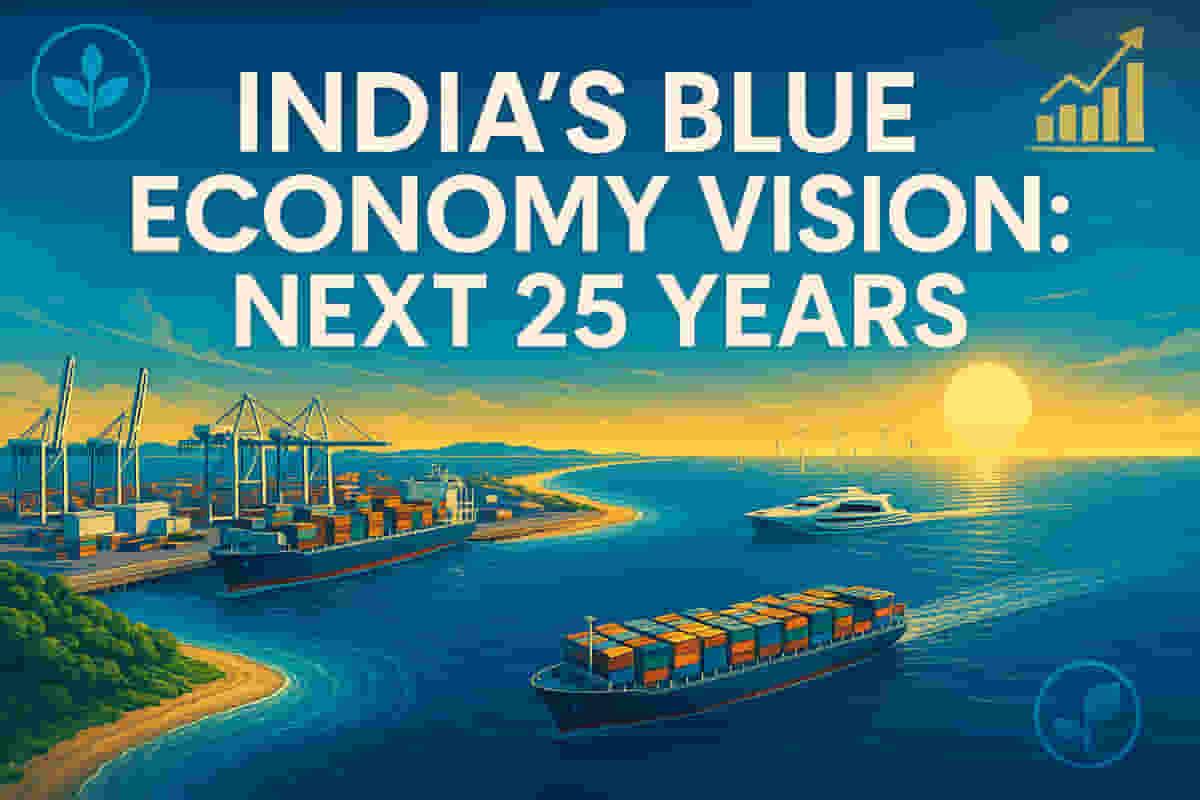Prime Minister Narendra Modi Outlines 25-Year Vision for India's Blue Economy and Coastal Development
Economy
|
29th October 2025, 7:38 PM

▶
Short Description :
Detailed Coverage :
Prime Minister Narendra Modi has declared that India will prioritize the blue economy and sustainable coastal development over the next quarter-century. Speaking at the Maritime Leaders Conclave during India Maritime Week 2025, he emphasized that India is positioned to be a steady global leader amidst challenging international seas. Key focus areas for the coming 25 years include developing the blue economy, promoting green logistics, enhancing port connectivity, establishing coastal industrial clusters, and revitalizing the shipbuilding sector.
To bolster the shipbuilding industry, the government has granted infrastructure status to large ships, which is expected to ease fund availability, lower interest costs, and improve credit access for shipbuilders. This move aims to restore India's historical prominence in shipbuilding.
The Prime Minister also pointed out the remarkable improvement in Indian port operations. Average container dwell time has been reduced to less than three days, and vessel turnaround time has been halved from 96 hours to 48 hours. These efficiencies place Indian ports among the most efficient globally. Amidst global trade disruptions, India aims to strengthen global supply chain resilience and is seen as a symbol of strategic autonomy and inclusive growth.
Impact This news indicates a significant long-term government commitment to maritime sectors, infrastructure, and sustainable economic activities. It could drive investment in port development, shipbuilding, and related industries, potentially boosting economic growth and employment. The focus on efficiency and global positioning suggests positive implications for trade and logistics. Rating: 8/10
Difficult Terms: Blue Economy: Refers to the sustainable use of ocean resources for economic growth, improved livelihoods, and jobs while preserving the health of ocean ecosystems. It encompasses a range of economic activities such as fisheries, maritime transport, tourism, energy, and resource extraction. Sustainable Coastal Development: Involves planning and implementing development projects along coastlines in a way that balances economic progress with environmental protection, social equity, and the long-term well-being of coastal communities and ecosystems. Infrastructure Status: A classification granted by the government to certain types of projects, which allows them to access financing on terms similar to infrastructure projects, often involving lower interest rates and longer repayment periods.